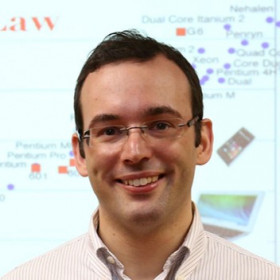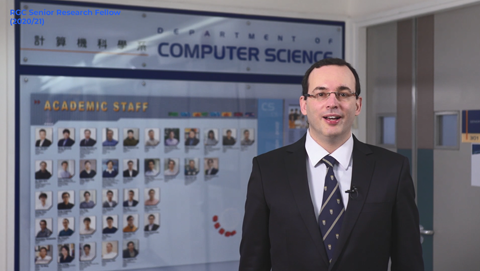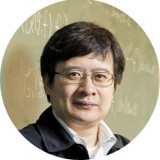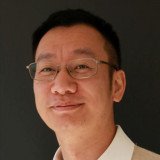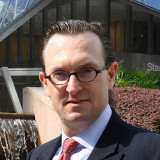Biography
- Director, QICi Quantum Computation and Information Initiative at The University of Hong Kong
- Internationally known for contributions to the theory of quantum networks, quantum statistics, and the foundations of quantum mechanics
- SRFS project — to design new algorithms for discovering cause-effect relations at the quantum scale, to develop a fully quantum theory of causal discovery, and to explore its application to the design of intelligent quantum machines capable of identifying cause-effect relations at the quantum scale
- Awards and Honours:
- RGC Senior Research Fellow (2020)
- Croucher Senior Research Fellow (2018)
- CIFAR-Azrieli Global Scholar (2016)
- Tsinghua University Excellent Young Teacher Award (2015)
- Hermann Weyl Prize (2010)
Project Title
- Quantum Causal Discovery and the Foundations of Quantum Artificial Intelligence
Award Citation
Prof. Giulio Chiribella is a quantum physicist working at the Computer Science Department of the University of Hong Kong. His research area is quantum information science, an exciting interdisciplinary field at the interface between computer science, physics, and engineering.
Prof. Chiribella is internationally known for his contributions to the theory of quantum networks, to quantum statistics, and to the foundations of quantum mechanics. In 2010 he was awarded the prestigious Hermann Weyl Prize “in recognition of his pioneering work within the framework of Quantum Information Theory”. Later, he was awarded a 1000 Talents of China Fellowship (2012), a CIFAR-Azrieli Global Scholars Fellowship (2016), and a Croucher Senior Research Fellowship (2018).
His 2020 RGC Senior Research Fellowship has been awarded for an innovative research project on the development of new algorithms for discovering cause-effect relations at the quantum scale.
The ability to identify causes and effects is crucial for a wide range of applications in science and society. Determining if a treatment causes recovery from an illness, recognizing which gene is responsible for a certain hereditary condition, or establishing the causes of global warming are just a few examples of causal discovery problems. Efficient algorithms for these problems have been developed in the past decades. However, all the existing algorithms are based on classical notions that break down at the microscopic scale, where physics is dominated by the laws of quantum mechanics.
The goal of this Fellowship is to develop a quantum theory of causal discovery, and to explore its application to the design of intelligent machines capable of identifying cause-effect relations at the quantum scale. This project will have a long-term impact on the foundations of quantum artificial intelligence, and will shed light on how the familiar notion of cause-effect may emerge from a quantum background at the microscopic level.
Short video of awardee


